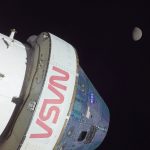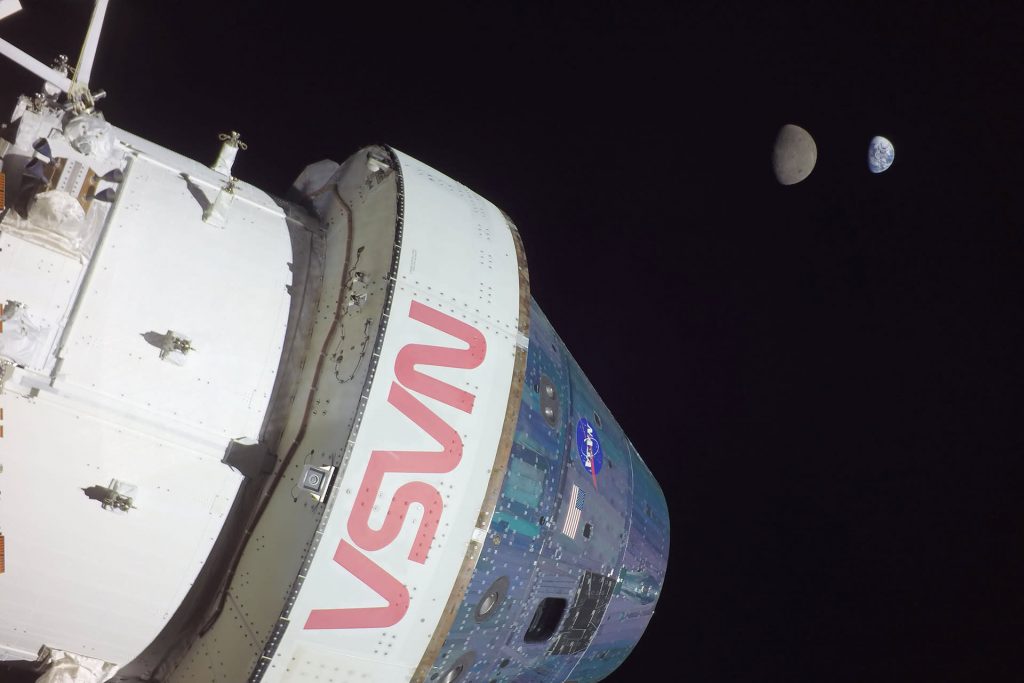Every month we recap some of the top stories in space, entrepreneurship, innovation, business, and technology.
With many exciting advancements in the international space sector, here is our recap for November 2022.
On 28 November, NASA’s Artemis I Orion spacecraft hit the halfway point (13 days) of its 26-day uncrewed lunar mission. Artemis I was finally launched after numerous delays on 16 November. Not only has the spacecraft, named “Odyssey”, successfully conducted its mission so far, it has traveled the farthest distance from Earth than any other spacecraft designed to carry humans. This record was previously set on April 14, 1970 by the Apollo 13 mission. Read more about the progress of Artemis I here.
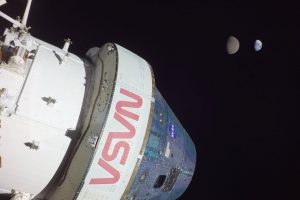
Photo taken by the Orion capsule “Odyssey”, capturing both the Earth and the Moon. (Image credit: NASA)
On 9 November, Rocket Lab announced that it will conduct its first ever launch from U.S. soil, currently targeted for 7 December. With past launches from New Zealand, this launch will continue to test Rocket Labs Electron vehicle and is the first of three contracted launches to deliver HawkEye 360 satellites into orbit. It is considerably cheaper to launch than other vehicles (estimated $5 million per launch compared to $62 million for SpaceX’s Falcon 9). Read more about Rocket Lab’s U.S. launch here.
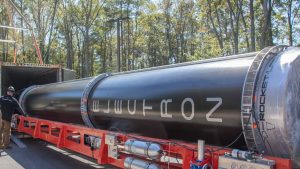
Rocket Lab’s Electron vehicle as it prepares for transport. (Image credit: Rocket Lab)
German space startup ConstellR has been awarded €10 million in seed funding to develop infrastructure and hardware to use space-based water monitoring technology to help protect the world’s food supply. With this investment, ConstellR is planning to wrap up its pilot programs, construct two initial satellites, and develop an innovative processing platform. Read more about Constellr’s new funding here.
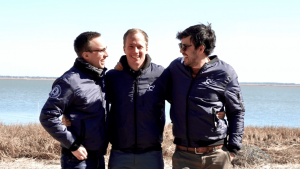
The ConstellR team (Image credit: Constellr)
On 15 November, a new strategic collaboration was announced between space-based edge computing startup, LEOcloud, and Axiom Space, an future commercial space station provider. Together, these two companies aim to develop and deliver cloud services, such as Microsoft and Red Hat, linked between space and terrestrial computers. Read more about this new merger here.

Artist rendering of the Axiom commercial module on the ISS, where LEOcloud edge computing software would be employed for space-Earth communications. (Image credit: Axiom Space)
A Chinese space startup, Space Epoch, has announced that it plans to develop its own sustainable and reusable rockets, similar to SpaceX’s Starship. The Beijing-based company has received a first round of angel funding and plans to begin development on a series of stainless steel rockets. Their initial goal is to build a 64 meters tall rocket that can launch a payload of 6,500 kilograms into sun-synchronous orbit. Read more about their development and launch plans here.
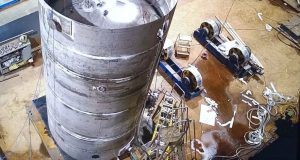
A stainless steel fuel tank built by Space Epoch as part of their reusable rocket program. (Image credit: Space Epoch)
Stay tuned for more next month!
